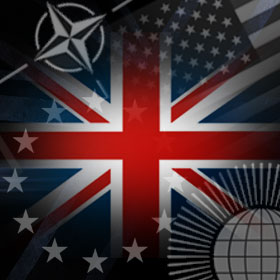Lost Illusions: British Foreign Policy
Ian Milne

The lessons of the last sixty years are that the UK should re-think its fraught entanglement with the EU. Britain cannot simultaneously pursue pro-American and pro-EU policies: the two are mutually-exclusive. Whatever force they may once have had, the arguments in favour of further integration into a failing and declining regional bloc have little bearing on the geo-political realities of the 21st Century.
The war in Iraq, the emerging EU Constitution and the British humiliation over the 2007-2013 EU Financial Perspective mark the collapse of three of the four principles underpinning British foreign policy. These four principles are:
- The Bridge Principle
- The “EU Integration Works” Principle
- The “British Ideas are Prevailing in the EU” Principle
- The Primacy of the Anglo-American Relationship
Ian Milne explains, and suggests how the UKs foreign policy should re-orient itself. This latest Bruges Group publication concludes with many Action Points amongst them are that:
The UK should disengage from the EU
The UK should continue to give primacy to staying close to the Americans. The right policy in the past, this will be ever more right in the future, as the military, economic and diplomatic “weight” of the USA in the world continues to grow, and that of the EU to shrink
This does not mean that the UK should strive for closer institutional links with the USA. Any illusions about the relationship being “special”, in the sense that sentiment is allowed by the British to cloud perceptions of each country’s self-interest, should be cast aside. Both countries need a robustly frank and independent relationship
Post-EU, the UK will continue to trade and have close and friendly relations with European nations – just as Switzerland and the US do today – and with whatever European institutions may succeed the present-day EU
The UK should stay in NATO, (or whatever successor body replaces it) for so long as the US remains committed to it. The UK should stay in, and resume its sovereign voting status in, the World Trade Organisation. It should participate in the other intergovernmental (and, unlike the EU, not supranational) bodies set up immediately after the Second World War, or their successor bodies – for example, a reformed United Nations
Above all, British foreign policy, and the British Foreign Office, having cast aside the frame of mind exemplified by the discredited Bridge Principle, lurching alternately between deference to “Europe” and deference to Washington, should elevate British self-reliance to the rank of guiding principle in its conduct of policy. That is Britain’s destiny, not as a province of some half-baked European federation




